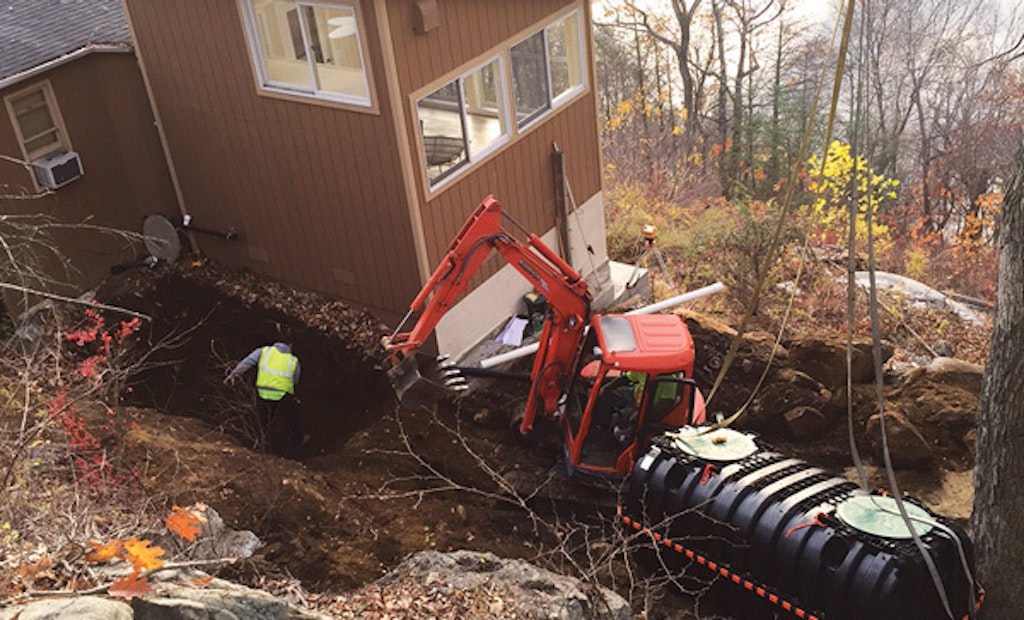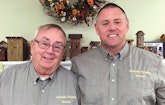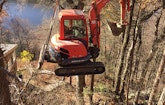
Interested in Industrial?
Get Industrial articles, news and videos right in your inbox! Sign up now.
Industrial + Get AlertsNames: Bill Coffey, president; Billy Coffey, vice president
Business: Pembroke Pumping Services Inc.
Location: Danbury, Connecticut
Age: Bill 72, Billy 46
Years in the industry: Bill 47, Billy 26
Our crew includes:
- Judy Coffey (founder), treasurer
- Kelli Coffey, secretary
- Sara Coffey and Erica Carboni, office staff
- Bill Conlea (lead foreman), Dave White and Will Coffey,
- installation and repair
- Greg Corso, mechanic
- Diego Lesmes and Jesus Mendieta, pumping
- Andy Pankulis, Bob Barnwell and Rob Dzamko, portable sanitation
Bill Coffey:
Association involvement:
Connecticut Onsite Wastewater Recycling Association (COWRA). We have been members for over 30 years, 12 of which I have held the position of vice president.
Benefits of belonging to the association:
COWRA is a legislative organization employing a lobbyist who works with the state of Connecticut regarding rules and regulations affecting septic installations and repairs. Two representatives from COWRA meet with the state Department of Health on a regular basis. These representatives have input on state codes, which benefit the organization’s members. The importance of COWRA is to keep its members current to the constantly changing health code.
Biggest issue facing your association right now:
FOG (fats, oils and grease) seems to be the trending topic right now. It’s a very sore subject for most cities because it’s such a detriment to sewer lines, septic systems and lift stations. City infrastructures are clogging with grease, and businesses and government are battling on how to solve this problem. The Department of Energy and Environmental Protection is now mandating restaurants pump grease traps every three months instead of a couple times a year and local governments are enforcing this now more than ever. The biggest issue is where to dispose of the grease because many facilities don’t have frac tanks to take it. In our district we are allotted one grease day a week for 3,000 gallons. This becomes difficult to manage the increasing customer demand.
Billy Coffey:
Typical day on the job:
The guys come into the office and grab work orders or contracts we have scheduled for the day. We go over important details/specifics of the job and then send out the separate crews. I will help on jobs when needed, but I find myself much more productive in the office generating and scheduling work for the week. In the past I would spend many hours on the job, in the hole, but more recently I’ve learned to let others do the labor so I can stay on top of the endless paperwork in the office.
Helping hands — indispensable crew member:
I can’t choose one member, as all contribute an important role. It is a difficult industry to maintain good help, so the turnover rate can be high. The crew members we have presently have been with us for several years and each brings something different to the table. Our lead foreman has been with us 35 years and his knowledge is irreplaceable.
The job I’ll never forget:
Every job has its story. The most recent one is a residential site where we had to crane all the equipment and materials in and out due to the slope of the property on the side of a mountain. The yard was probably 50 feet below the road with no accessibility. It was a tedious process but the cranes, combined with the talent of the crew, got the job done. The customer, neighbors, sanitarians and all involved were very impressed with the final product.
My favorite piece of equipment:
The Camel truck from Super Products. Repairing broken waterlines is a large part of our business, which used to require digging and repairing by hand. Once we purchased the truck 10 or 15 years ago, this process became simplified by using hydroexcavation instead. It’s a timesaving piece of equipment.
Most challenging site I’ve worked on:
There was a septic system we installed about 20 years ago on the side of a cliff on Lake Candlewood. It was on a small lot with a narrow road and all work had to be done over a wall with a steep drop. This was before we discovered cranes on a job, which made this very challenging. This job was not for anyone with a fear of heights. The drop was terrifying. Since that time, we have returned to pump the septic tank a half dozen times, and to date I am still a bit queasy when I do this job.
The craziest question I’ve been asked by a customer:
Why is my grass the wrong shade of green? I had a customer who did not like the color of her grass. The job came out beautiful and she calls and complains about the color of the grass. I chuckled and said, “I’m sorry, that’s the color Mother Nature gives you. I can’t do anything about that.”
If I could change one industry regulation, it would be:
Municipalities — a little more flexibility, a little less rigidity. Our engineering departments don’t allow any on-the-job changes that could ultimately be better and more cost-effective for the town and the customer. Things can happen on the job that differ from the original plan and there is not enough flexibility for changes. OSHA is the largest and most necessary of industry regulators. As essential as they are for every employee’s safety, they can be challenging, as well.
Best piece of small-business advice I’ve heard:
My father always said, “Stick with what you’re good at.” A lot of guys want to diversify in business and sometimes that’ll sink a ship. My father started with one septic truck back in 1970 and then we expanded into portable toilets, then we expanded into the electric snaking and the jetting. It all fell right in line with septic and sewer, so that’s pretty much where we’ve stayed.
If I wasn’t working in the wastewater industry, I would:
I always said I wanted to be a lawyer, but I never had the staying power for school. I knew I would follow in my father’s footsteps, expanding and growing the family business, just as I have. In hindsight, I wouldn’t have changed a thing.
Crystal ball time — this is my outlook for the wastewater industry:
I’ve seen things change from when I was younger, backing up to a pond and blowing your septic truck off and looking at the biggest tomatoes you’ve ever seen grow in what they call lagoons! Today we have to give samples when we go to the treatment plant since the technology with dewatering has changed so drastically. Technology has become a game-changer in our industry in terms of snaking and cameras and things of that nature, and the key is to stay on top of the constant changes. Some people don’t like change. I am all for it. I want the latest and greatest products and equipment available that are going to save me time and the customer money.
- Compiled by Betty Dageforde








